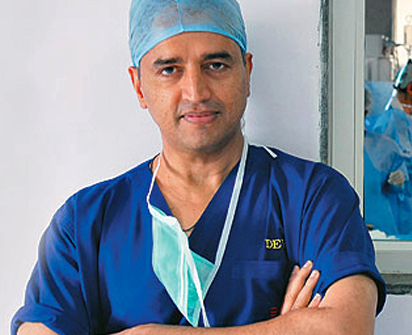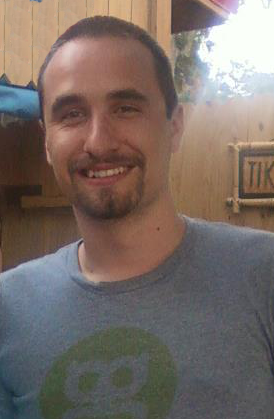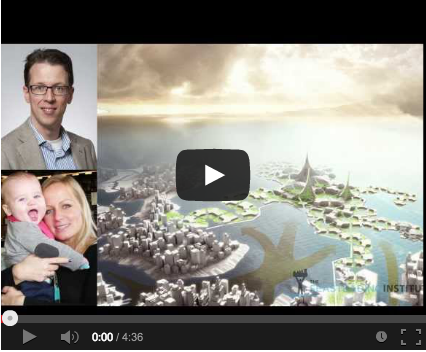
The Seasteading Institute March 2013 Newsletter

I couldn’t co-write a book about seasteaders without getting hooked. The book, Seasteading: How Floating Nations Will Change the World, is in the hands of Simon and Schuster and will be published in 2015. Now it’s time to stop writing about seasteading and make it happen. Charlie Deist our Staff Writer and Volunteer Coordinator since 2011 has left us as staff member, but is remaining with us as a volunteer ambassador (see his farewell letter below). I’m pleased to have the opportunity to join the Institute full-time in his place.
In the short few weeks I have been on staff it has already been invigorating to touch base with so many inspiring members of our community and help connect designers, architects, engineers, scientists, and aquapreneurs to each other. My primary goals as our new Author and Communication Director are to engage our supporters and ambassadors, grow our movement through public relations, and assist Executive Director Randolph Hencken and the rest of our team with our major activities like the Floating City Project.
I look forward to becoming more deeply involved in our network and meeting hundreds of new seasteading enthusiasts. Please feel free to reach out to me and let me know your ideas and passions about seasteading. Maybe we can find a way to more fully include you in our movement to get seasteads floating on the high seas.
Onward to the ocean, Joe Quirk Author and Communication Director
Table of Contents
- Top 5 Things to Know about the Floating City Project
- Marc Andreessen Predicts an “Explosion of New Countries in the Years Ahead.”
- Surgeon Devi Shetty Promotes Hospital Ships Outside of the US, Settles for the Cayman Islands
- Press Mentions: Marketplace Radio, The Tyee, Süddeutsche
- The Institute Requests Salon.com to Remove the Insulting Title from the Tyee Article
- Video: Eight Moral Imperatives of Seasteading: Live in Balance with Nature
- Charlie Deist’s Farewell: Pushing Onward with Steadfast Resilience
- Featured Ambassador: Diana Bond
- Featured Donor: Justin Sousa
Floating City Project Update: Negotiations are Underway
Progress continues with our primary effort, the Floating City Project. One of our key objectives is to find a host nation willing to offer a seastead substantial political autonomy within protected waters in territorial seas, in exchange for the economic, social, and environmental benefits of having the seastead as a neighbor. We are currently in diplomatic talks with government officials and influential people in several potential host nations, and we are seeking more contacts to widen our net of opportunities.
In order to avoid a media frenzy that could spoil delicate negotiations, we don’t feel at liberty to share publicly which nations are considering hosting seasteads. Until we can announce an official agreement with a host nation, any reports that appear in the media are just speculations.
However, Executive Director Randolph Hencken travelled in February with a delegation of lawyers and investors to meet with government officials and business leaders in a candidate nation. That’s all we can disclose for now.
Video: Top 5 Things to Know about the Floating City Project
For those of you have not been able to keep up with everything we have been doing with the Floating City Project, we made this two-and-half-minute video to inform you of the top five things to know about it.
If you would like to live on the first floating city, please let us know at www.floating-city.org.
Marc Andreessen Predicts an “Explosion of New Countries in the Years Ahead.”
 Netscape founder and venture capitalist Marc Andreessen, Peter Thiel’s friend and debate partner, is eager for governance startups. “The world is going to see an explosion of new countries in the years ahead. I think there is going to be double, triple, quadruple the countries in the coming years,” Andreessen told an audience at a PandoMonthly in San Francisco last year.
Netscape founder and venture capitalist Marc Andreessen, Peter Thiel’s friend and debate partner, is eager for governance startups. “The world is going to see an explosion of new countries in the years ahead. I think there is going to be double, triple, quadruple the countries in the coming years,” Andreessen told an audience at a PandoMonthly in San Francisco last year.
Elaborating to CNBC, Andreessen said, “In general, we would be able to start more companies in more categories if there was less regulation … I’m in favor of smart regulation, but we passed these huge fifteen-hundred-page bills on the spur of the moment that have huge unintended consequences. So as a consequence, you have whole swaths of the American economy where basically we can’t start companies. We basically can’t start modern healthcare companies. We can’t start modern education companies. There’s all kinds of fields like this, whereas if the regulations were liberalized, you could bring the kind of innovation Silicon Valley does into a lot of industries, and I think at some point socially, culturally, we have to decide: Do we want innovation or not? And if we do, we need the political regime to make that possible.”
Between 1990 and 2011, about 29 countries have been created. This is happening at an average clip faster than one nation per year. Seasteaders seek to speed this up. The Seasteading Institute has been joined by 83 volunteer ambassadors from 23 countries who speak and educate about seasteading all over the world.
Surgeon Devi Shetty Promotes Hospital Ships Outside of the US, Settles for the Cayman Islands
 “The best location to build a hospital on the planet today is a ship that is parked in the US waters just outside its territory,” Dr. Devi Shetty said. “The site at the Cayman Islands is the closest approximation that fits the bill.”
“The best location to build a hospital on the planet today is a ship that is parked in the US waters just outside its territory,” Dr. Devi Shetty said. “The site at the Cayman Islands is the closest approximation that fits the bill.”
We have been following Devi Shetty’s humanitarian accomplishments every since Nishant Bagadia, former VP of Neuhealth, and Peter Wei, author and medical student at Duke University, independently acknowledged Shetty’s famous hospitals in India as precedents for seasteading. Now Dr. Shetty himself is speculating about the sea.
The Wall Street Journal dubbed Dr. Shetty “The Henry Ford of Health Surgery.” He created 14 hospitals that offer coronary bypass surgeries to Westerners for about $5,200 USD, and in turn he offers medical insurance to millions of rural poor Indians for 25 cents a month. His hospital’s success rates are equal to or better than the U.S. hospitals, which currently charge an average of $144,000 USD.
But why fly to India to cut medical costs when you can visit a nearby island?
“By building such a healthcare institution in a British protectorate right outside the US regulatory structure,” Shetty told The Economic Times, “which can work with US doctors and experts for the US patients, one can show what is possible in healthcare even in the developed world and at what cost.”
Patients Beyond Borders, which counsels patients seeking medical travel, estimates that well over a half million people will travel abroad for treatment in 2014, and the numbers will grow 15 to 20 percent each year as baby-boomers overwhelm the system.
Exaggeration? Deloitte Consulting, the largest financial services network in the world, published an article in 2008 estimating that the number of Americans who travelled abroad for healthcare jumped from 750,000 in 2007 to 1.6 million in 2012, and that this number could increase by a factor of ten over ten years.
Healthcare in the US is not going to get cheaper any time soon. A terrifying study published in the March/April 2012 issue of the Annals of Family Medicine claimed the typical American family would spend $20,000 on health care that year, and that if current trends continue, health insurance premiums will surpass the median U.S. household income in 2033.
To serve the rising wave of US medical tourists, “health cities” are being built in the Cayman Islands, St. Maarten, the Bahamas, Barbados, and several other Caribbean states. As all the natural islands surrounding dysfunctional health care systems get used up, there will be increasing demand for man-made islands, starting with medical ships stationed even closer to frustrated patients.
Press Mentions: Marketplace Radio, The Tyee, Süddeutsche
Since the beginning of the year, seasteading has been featured in a handful of media outlets, highlights of which are below. We archive most of our features in the media on our Press Mentions webpage.
Radio: Silicon Galley? (NPR’s Marketplace, February 11, 2014) Does Silicon Valley exhibit the qualities of an island? An outpost with its own rules? Or, insular and cut off from society? The popular radio show Marketplace recently covered this theme in a six-minute segment connecting the vision of seasteading with recent developments in the Bay Area technology hub. The segment covers both Blueseed’s concept for a visa-free technology startup incubator, as well as the broader idea of seasteading as explained by the Institute’s Executive Director, Randolph Hencken. Far from seeking to insulate themselves, Randy notes, inhabitants of floating cities will be the kinds of people who want to engage in exchange with humanity.
Does Silicon Valley exhibit the qualities of an island? An outpost with its own rules? Or, insular and cut off from society? The popular radio show Marketplace recently covered this theme in a six-minute segment connecting the vision of seasteading with recent developments in the Bay Area technology hub. The segment covers both Blueseed’s concept for a visa-free technology startup incubator, as well as the broader idea of seasteading as explained by the Institute’s Executive Director, Randolph Hencken. Far from seeking to insulate themselves, Randy notes, inhabitants of floating cities will be the kinds of people who want to engage in exchange with humanity.
Worried About Earth? Hit the High Seas (The Tyee, March 1, 2014)  Seasteading continues to attract solution-seekers from across the political spectrum. Geoff Dembicki, the “lead climate change and energy reporter” for the Tyee, a Canadian online magazine that names itself after the tyee salmon, was intrigued by the Moral Imperatives video series and asked Joe Quirk for an interview. Dembicki asked challenging questions and was enthused by the answers, writing:
Seasteading continues to attract solution-seekers from across the political spectrum. Geoff Dembicki, the “lead climate change and energy reporter” for the Tyee, a Canadian online magazine that names itself after the tyee salmon, was intrigued by the Moral Imperatives video series and asked Joe Quirk for an interview. Dembicki asked challenging questions and was enthused by the answers, writing:
“Quirk’s vision is audacious, but not necessarily far-fetched. Some biofuel firms see great promise in algae-based “Green Crude.” And Lockheed Martin, for one, has studied ocean thermal energy since the 1970s. Nor are small floating cities so unrealistic: they might combine aspects of offshore oilrigs and cruise ships. So what’s holding back our shift to a blue civilization? Seasteaders assign much of the blame to an ineffectual public sector.”
Floating Social Laboratories: Ocean Feeling (Süddeutsche Zeitung, January 23, 2014) ![]() Jörg Häntzschel, writing for the German on-line newspaper Süddeutsche, writes a comprehensive report of the seasteading mindset, drawn from an interview with our Executive Director Randolph Hencken. The interview touches on Patri Friedman, start-up cities, Paul Romer, poverty reduction in Hong Kong, Singapore and Shenzhen, DeltaSync’s feasibility study, and government 2.0. If you do not read German, plug this article into your Google translator and check it out.
Jörg Häntzschel, writing for the German on-line newspaper Süddeutsche, writes a comprehensive report of the seasteading mindset, drawn from an interview with our Executive Director Randolph Hencken. The interview touches on Patri Friedman, start-up cities, Paul Romer, poverty reduction in Hong Kong, Singapore and Shenzhen, DeltaSync’s feasibility study, and government 2.0. If you do not read German, plug this article into your Google translator and check it out.
The Institute Requests Salon.com to Remove the Insulting Title from the Tyee Article
On March 13, Salon.com reprinted Geoff Dembicki’s article from Tyee (see news item above), but changed the title. We requested that they change it back. This is our letter to Salon.com. If you agree that Salon.com exercised a severe lack of journalistic integrity by altering the title to the otherwise objective report, we encourage you to let them know at: www.salon.com/feedback
Dear Editors at Salon,
Why did you change the title of the fair-minded article originally published with the headline, “Worried About Earth? Hit the High Seas: What Seasteaders reveal about our desire to be saved by technology,” and replace it with the insulting, “Libertarians’ delusional “New Atlantis” fantasy: Floating ocean city-states”?
Geoff Dembicki, lead journalist at the green-leaning Canadian Tyee, brought the right mix of scepticism and curiosity to his original story about seasteading. Captivated by The Seasteading Institute’s Moral Imperatives video series, he sought to understand the growing subset of seasteaders seeking environmental solutions and made an effort to inform his readers objectively. We think Salon readers would be interested in the green aspects of seasteading.
It’s easier to float than fly, and cheaper to build on water than walk on the moon. While we are still in the early stages of initiating floating cities through strategic and incremental planning, we are no more “delusional” than the European pioneers who sailed to establish unique societies in the New World, from which we have all benefited.
Why not stick with Dembicki’s title and give your readers a chance to intelligently investigate seasteading themselves? We remember when the media had an obligation to aspire to journalistic objectivity. We saw Dembicki’s original article as obtaining this high standard.
Sincerely, Joe Quirk, Author and Communications Director at the Seasteading Institute
Video: Eight Moral Imperatives of Seasteading: Live in Balance with Nature
DeltaSync authored our feasibility study for the Floating City Project, but they also have long-term plans to create offshore floating eco-cities which will use the wastewater from coastal cities as food and biofuel. We created a short video to sum up their ambitions. More detailed plans can be found at their website and in Rutger de Graaf’s illustrated booklet: Adaptive Urban Development: A symbiosis between cities on land and water in the 21st century.
Charlie Deist’s Farewell: Pushing Onward with Steadfast Resilience
We are sad but proud that Staff Writer Charlie Deist has committed his talents to a university startup accelerator and sailing, which engages his unique mix of his scholarship, startup sensibility, and seamanship. He remains with the Institute as a leading ambassador. This is his farewell letter.
 In passing the communications baton to the inimitable Joe Quirk, I’ve had a chance to reflect on what he can expect to encounter as the incoming initial point of contact for the Institute. Interactions with our community members span a wide range of topics and interests, but the common thread is everyone’s tendency to cast the seasteading vision in their own image. Dreamers want to link our project with the science fiction vision of the Venus Project; libertarians hope we will someday capitalize their plans for a voluntarist paradise with a real-life machinery of freedom; and entrepreneurs hear “Silicon Valley” and think “seed funding!”
In passing the communications baton to the inimitable Joe Quirk, I’ve had a chance to reflect on what he can expect to encounter as the incoming initial point of contact for the Institute. Interactions with our community members span a wide range of topics and interests, but the common thread is everyone’s tendency to cast the seasteading vision in their own image. Dreamers want to link our project with the science fiction vision of the Venus Project; libertarians hope we will someday capitalize their plans for a voluntarist paradise with a real-life machinery of freedom; and entrepreneurs hear “Silicon Valley” and think “seed funding!”
Admittedly, when I began as an administrator in late 2011, fresh out of college, I also saw seasteading in light of my own agenda. The Seasteading Institute was a hip, alternative “startup” of sorts in an awesome city. Blueseed was emerging as a powerfully contrarian voice in the immigration/technology debate, and while the Institute’s direction was indeterminate, its overall agenda was an optimistic blip on an otherwise bleak landscape for recent grads.
Since then, these ideas have continued to subtly lend strength to political coalitions like Mark Zuckerberg’s FWD.us (which looks utterly reasonable compared to our league of truly extraordinary wackaloons). The Institute has honed its focus on the adjacent possible, and been advancing the vision and technology that will inevitably break the government monopoly. I have been honored to work alongside Randy Hencken, whose boldly human and inclusive approach has expanded the horizons of a movement constantly at risk of becoming overly insular. Getting a diverse community to focus on incremental steps toward a long-term goal is no mean feat, yet the Institute continues to accomplish this with fresh, pluralistic initiatives.
I feel lucky to have been a part of this ongoing renewal of the physical and political landscape, through which the Institute’s ideas and community are spawning brand-new avenues for expanding humanity’s frontiers. Last month, for example, I got to experience my first of the monthly raft-ups at Treasure Island in San Francisco Bay, where 13 sailboats met – as casually as a dinner group or card-playing club might convene – to “seastead” Ephemerisle-style for a three-day weekend. I now skim the news each day to read the latest commentary on experimental government initiatives like “Six Californias,” or on the many ways technology is superseding dysfunctional politics.
Far from relegating the Institute to a lesser role, these green shoots signal the importance of reinforcing the key idea it laid out more than five years ago: We must let 1,000 nations bloom on the high seas. The Seasteading Institute’s resilience relative to past short-lived utopian thought experiments is a result of its vision being too revolutionary to be subsumed under any central plan, individual ego, subculture, or narrow ideal. I can confidently say that the Institute is in excellent hands to maintain the course towards even broader appeal in key audiences, as well as greater resilience to pressures that would warp or diminish this vision.
In the coming months, I will be working with a team at UC Berkeley’s SkyDeck accelerator on developing an app, while learning to sail the Bay in my spare time. My ambitions have been expanded through contact with the sustained optimism and integrity of this community; when I inevitably run into obstacles in my future path, I will remember the steadfast resilience of my fellow seasteading pioneers, and push onward.
I’ll see you on the high seas!
Sincerely, Charlie Deist
Featured Ambassador: Diana Bond
 After learning about The Seasteading Institute through The Daily Show with Jon Stewart, Diana immediately signed up to volunteer to live on a seastead. A few years later, she volunteered at The Seasteading Conference in 2012. The experience was so inspirational, she decided to assist the Institute in furthering their goals whenever possible.
After learning about The Seasteading Institute through The Daily Show with Jon Stewart, Diana immediately signed up to volunteer to live on a seastead. A few years later, she volunteered at The Seasteading Conference in 2012. The experience was so inspirational, she decided to assist the Institute in furthering their goals whenever possible.
In her early years, Diana was placed in the Gifted and Talented Education program (GATE). However, a mysterious illness, later diagnosed as Behcet’s Syndrome, caused excessive school absences and her subsequent removal from the program. Although the illness continued to derail her educational goals, she persevered and taught herself critical skills that have proven to be quite valuable. As a result, she has earned the reputation as one of the most adept volunteers at providing edits and feedback on the upcoming seasteading book, as well as overall feedback on the Institute’s mission and strategy.
Diana is living proof that alternate systems of education can compete with well established and respected educational institutes and their respective degrees. She would like to help The Seasteading Institute prove that systems of governance can similarly compete with existing forms of government to make the world a better place.
In her own words: “I believe that everyone has the same set of needs, but not the same opinions about how to address those needs. Instead of allowing our differences in opinion to divide us and slow down progress, I want to work towards creating diverse systems of governance that will inspire and enable cutting-edge innovation in the fields of food and energy production, medical care, and water conservation/purification.”
 My name is Justin Sousa. I’m a 24-year-old software engineer working out of New York City. I have taken a bit of a hectic path through life when it comes to my political beliefs. I grew up in a very liberal democratic family. It instilled in me the beliefs in personal freedoms that I highly cherish, but it seemed to be an extremely wasteful system economically, forcing people to pay for programs that they didn’t necessarily agree with, and that were terribly run and lose value. I went through a phase of experimenting with conservative economic values, which made more sense to me, but those with the same ideas tended to have a very disagreeable attitude when it came to many personal freedoms.
My name is Justin Sousa. I’m a 24-year-old software engineer working out of New York City. I have taken a bit of a hectic path through life when it comes to my political beliefs. I grew up in a very liberal democratic family. It instilled in me the beliefs in personal freedoms that I highly cherish, but it seemed to be an extremely wasteful system economically, forcing people to pay for programs that they didn’t necessarily agree with, and that were terribly run and lose value. I went through a phase of experimenting with conservative economic values, which made more sense to me, but those with the same ideas tended to have a very disagreeable attitude when it came to many personal freedoms.
Most of these ideas I had only considered in a passive manner, thinking that it wasn’t really my problem; I’m a kid just trying to get into and out of college, because that’s what I’m supposed to do, right? I put off my thoughts on government, seeing the two sides of our political system battle it out, making no progress whatsoever and in fact getting worse every day. I started looking at other countries in the world, and none of them seemed any better. It was either have freedom, but be taxed and watched from every angle, thinking about how many laws you have probably broken that day just living a normal life, or you have no freedom at all, having your life dictated by an ancient scripture or whatever mob ruled at the time.
It was around these times that I stopped believing that any good system that promoted freedom and prosperity in a peaceful manner existed, at least not any more. It seemed like America had started off on the right foot, but what it had become was nothing like where it came from. What went wrong? After a brief stint with ancient philosophers like Plato and Socrates, who didn’t seem to have any definite answers, I discovered works by philosophers and economists like F. A. Hayek, Ludwig von Mises, and Murray Rothbard. Finally, there was the idea of a system where law is dictated not by a complex web of regulation and aggression, but by individuals in voluntary agreements. It gave me hope. It certainly didn’t hurt that the emergence of distributed, cooperative systems had been discovered as the most successful systems in the virtual world. But where was this system in our world? It seemed to be a thing of the past, grazed by places like Celtic Ireland and early America, but lost on people today. The ideas, I believe, need to be revisited, in a modern sense, with people who have gotten past xenophobia, because we are all connected to each other at every moment by the Internet.
This is why we need the seasteading movement. We have reached a point in time where people have learned to get along and deal with each other personally. They can do that without a man standing behind them, forcing them to do so, and taking their money because it is somehow thought that if that man weren’t there, they couldn’t get along with their neighbors otherwise. Maybe a system such as this wouldn’t work, maybe it will never work, or maybe we’re just not ready for it yet, but isn’t it worth giving it a shot again with people who have the same beliefs of cooperation being the roots of prosperity? We’ve tried it before, from blank slates, but we still held some fear of parts of the world we did not know. Now we all know everyone. We need to be able to start again. We can have a blank slate to experiment on, and find a way of living together peacefully and prosperously.
Past Newsletters
- December, 2013
- September, 2013
- June, 2013
- April, 2013
- December, 2012
- November, 2012
- August, 2012
- June, 2012
- May, 2012
- March, 2012
- January, 2012
- November, 2011
- October, 2011
- July, 2011
- June, 2011
- May, 2011
- March, 2011
- January, 2011
- October, 2010
- September, 2010
- August, 2010
- July, 2010
- May, 2010
- April, 2010
- March, 2010
- February, 2010
- December, 2009
- November, 2009
- September, 2009
- August, 2009
- July, 2009
- June, 2009
- May, 2009
- April, 2009
- March, 2009
- February, 2009
- January, 2009
- December, 2008



Je suis moi-même un fervent, supportaire pour la création d’Iles flottantes, Et concepteur de nouvelles formes d’architecture, pour des modules flottants. Je viens de finir une étude,innovante de type d’Île flottante. Je voudrais faire partie d’une équipe qui voudrait réaliser un model grandeur nature. Pourriez-vous m’orienter. Dans mon blog vous trouverez, mon article publié il y a deux jours, décrivant largement ma conception de “Mon Île, ma Patrie” . Voici le lien de mon blog. http://360-degres.over-blog.com/ Mon Île,ma Patrie.